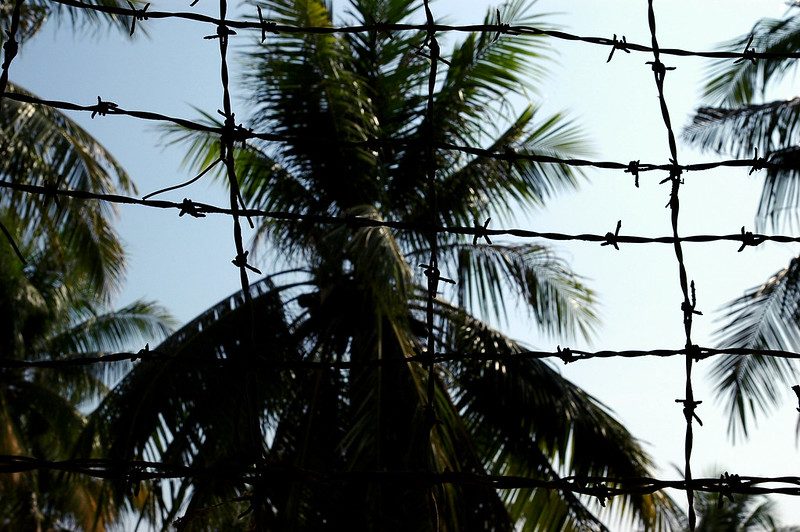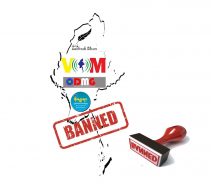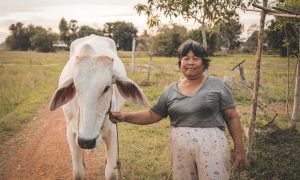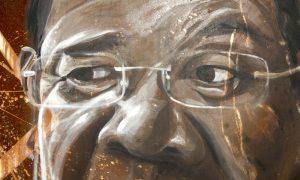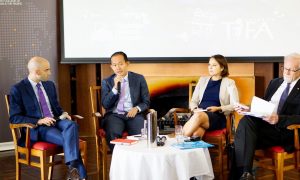Cambodia’s National Assembly, controlled by Hun Sen’s Cambodian People’s Party (CPP), announced that the government had passed a new emergency law to address the growing concern of COVID-19 in the country. Human Right experts internationally have expressed deep concerns about the approved legislation the “Law on National Administration in the State of Emergency” stating that it will deepen human right violations in the country and is a façade to further entrench the Hun Sen regime.
The approved legislation allows a state of emergency to be declared in a range of scenarios and for an unrestricted period of time—in this case, in response to a public health crisis. Article 5 of the new legislation uses the frontage of social-distancing measures and mandatory isolation to impose autocratic restrictions on people’s civil rights. Included in article 5 are prohibitions on the congregation of people, which human right experts worry will impinge on the right to freedom of assembly and association long after the COVID-19 crisis ends. On top of this, the legislation affords the Hun Sen administration unlimited surveillance of telecommunications and the capacity to seize private property.
Among these measures, severe limits on the freedom of information will weaken democratic rights in Cambodia, with further restrictions placed on the press in a nation already fighting for media freedom. Hun Sen’s crusade against the media is often demonstrated through the notion that he is protecting his people from fake news. He recently stated “the real illness was the fear they faced from inaccurate information spreading on social media” and then further threatened he would “kick out” reporters wearing face masks.
Real attempts to diminish independent media have already been taken under these new legislations, with the arrest of Sovann Rithy. A journalist for the online news site TVFB, Rithy was arrested and charged with “incitement to commit a felony” after quoting an excerpt from a speech Hun Sen made regarding the COVID-19 crisis. Sovvan Rithy posted Hun Sen’s quote “If motorbike-taxi drivers go bankrupt, sell your motorbikes for spending money. The government does not have the ability to help” to his personal Facebook page – however, authorities claim that Hun Sen’s words were intended as a joke and that Rithy attempted to portray them out of context.
Phil Robertson, deputy director of Human Rights Watch’s Asia Division, stated: “Even in Hun Sen’s Cambodia, arresting a journalist for quoting the prime minister marks a new low for press freedom”. On top of this, Monoroom.info, a Khmer language news site based in Europe became inaccessible in late March after it published several articles regarding the COVID-19 pandemic in Cambodia.
COVID-19 gives cover for threats to freedom of information and expression in Myanmar
An ongoing crackdown on freedom of expression is impacting the access to essential information.
This comes in a line of clampdowns on freedom of the press in Cambodia, with the CPP forcibly shutting and banning multiple major independent newspapers across the country in recent years.
The Hun Sen administrations capacity to arrest citizens over alleged incitement of fake news has seen a spike in unlawful and politically motivated arrests. As of the 9th of April, the Hun Sen regime had arrested 23 people and held 10 in pre-trial detention on the premise of spreading “fake news” related to COVID-19. Among those arrested under these new, arbitrary laws were 8 individuals affiliated with the opposition Cambodia National Rescue Party (CNRP), which was forced to dissolve at the hands of the CPP.
Along with the capacity to make such arrests there was also the threat that individuals guilty of disobeying the emergency measures would face 10 years in prison. In response to this, David Griffiths, director of the office of the secretary-general at Amnesty International stated: “This is a blatant exploitation of public panic around COVID-19 and threatens to eviscerate the human rights protections which are guaranteed by the Cambodian constitution and international human rights laws”.
 Facebook
Facebook  Twitter
Twitter  Soundcloud
Soundcloud  Youtube
Youtube  Rss
Rss 